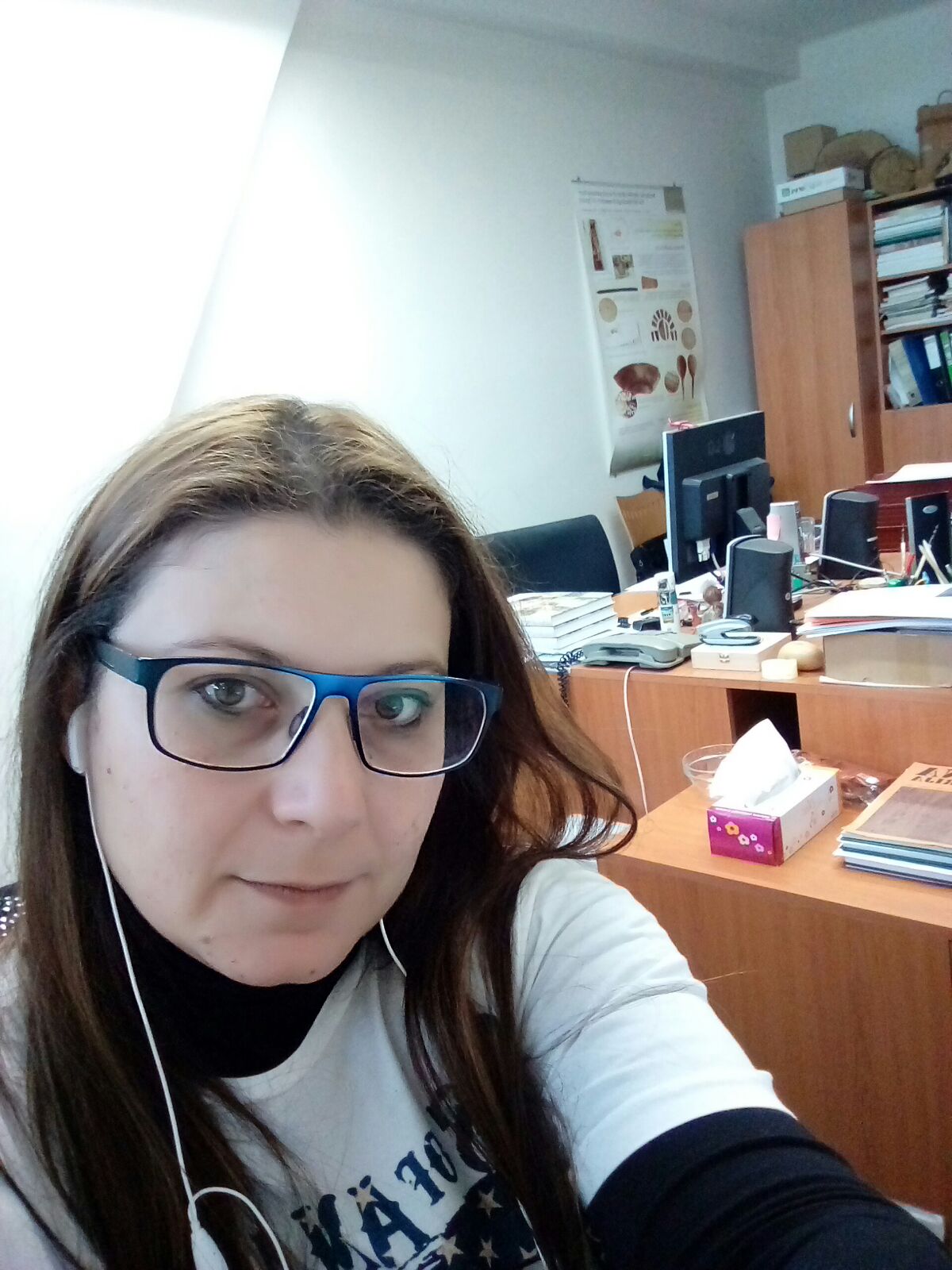
Dr. Kyriaki Giagli
(Mendel University in Brno, MENDELU)
How did you arrive at your current position?
My current position as an Assistant professor in the field of wood science at the Department of Wood Science and Technology, Faculty of Forestry and Wood Technology Mendel University in Brno (MENDELU), Czech Republic, is a result of an interesting journey. Growing up in an area with a rich natural environment in Greece, the forest has been always connected with the memories of my childhood. What's more, wood as a raw material was part of my everyday life due to a related family business. So, in 2002, I graduated from the Faculty of Forestry and Natural Environment, Aristotle University of Thessaloniki, Greece. In 2003, I won a Greek national competition for young researchers and was awarded a 4-year scholarship by the State Scholarships Foundation Grant Agency (IKY) for postgraduate studies in the structure and properties of wood. Benefitting from this funding, I finished my M.Sc. (2005) and Ph.D. (2010) studies in Wood Science at the Aristotle University of Thessaloniki, Greece and collaborated with various European universities and institutes in several study programmes and research projects. In 2013, I was employed as a postdoc researcher at MENDELU, with the financial contribution of the EU and the state budget of the Czech Republic. Part of my postdoctoral research (6 months) was conducted in Slovenia, where I was hosted by the Gozdarski Slovenian Forestry Institute and collaborated with the University of Ljubljana. For the last almost 3 years, I have acted as a member of the ASFORCLIC Executive Committee being responsible for European collaborations and research excellence.
Which scientific question are you the most eager to answer?
My research is mainly focused on the anatomy and properties of wood; Cell structure and anatomy, wood formation, seasonal dynamics of the cambium, microscopy techniques, technical properties of the wood, utilization of the wood and wood-based products. I investigate the inter-annual and intra-annual dynamics of the cambial activity, the formation of the xylem and phloem of softwoods and hardwoods, and the adaptation mechanisms of the tree species growing under the extreme weather conditions caused by climate change.
What is the future of your research?
Focusing on forest growth and wood formation under prevailing extreme environmental conditions of climate change requires concrete scientific results to be used as operational tools for the decision-makers urgently. Our research will stay intent on analyzing environmental change to create preventative strategies for tree health and wood quality. This requires strong collaborations between researchers and active networking for collective actions.
Open Science, especially Open Data, is highly debated on various levels. What is your opinion?
It is essential and righteous to exchange data and make scientific results available to establish collaborations and promote research under the fundamental rule of “as open as possible, as closed as necessary”. I strongly support Open Science and Open Access under the FAIR data principles of findability, accessibility, interoperability, and reusability, bearing in mind that we are heading towards the artificial intelligence era.
How do you maintain your work-life balance?
This is a life quest regardless of the profession or the position. Embracing all the roles of our lives at once is a difficult equation to solve. Overall, I choose to be present and grateful enjoying the understanding and support of my family.
How difficult is it to have a career in science? How do you keep your motivation?
Conducting science is a challenging career path with twofold aspects; privilege and accountability. The research itself can be motivating since it carries the essence of questioning and investigation. My motivation is always led by the impact of science on society’s future and gets activated by continuous training and improvement of knowledge, collaborations on new projects, creativity, development, and exploration of new research topics, work ethics and cultures.
How did you personally benefit from being a part of the ASFORCLIC consortium so far?
Strong teamwork and coordinated research, in my opinion, are the best strategies to achieve significant scientific breakthroughs. The ASFORCLIC project provided this huge opportunity for multidisciplinary collaboration among partners, both strengthening current ones and developing new ones inside the consortium and out. That alone was a significant benefit, not only for myself but, hopefully, for all of the consortium members. Having the opportunity to be a part of this venture, from the conception of the idea to the realization of the project, was undoubtedly a life-changing experience for me. As a member of the executive committee, I became familiar with the processes of large European projects as a whole, gained valuable knowledge of administration and leadership needs, and enhanced my abilities in managing human and material resources. Finally, and most crucially, working relationships in the multicultural ASFORCLIC consortium, as well as tight ties with exceptional colleagues, partners, and stakeholders, provided me with priceless insights.
![]() This project has received funding from the European Union's Horizon 2020 research and innovation programme under grant agreement N°952314.
This project has received funding from the European Union's Horizon 2020 research and innovation programme under grant agreement N°952314.
